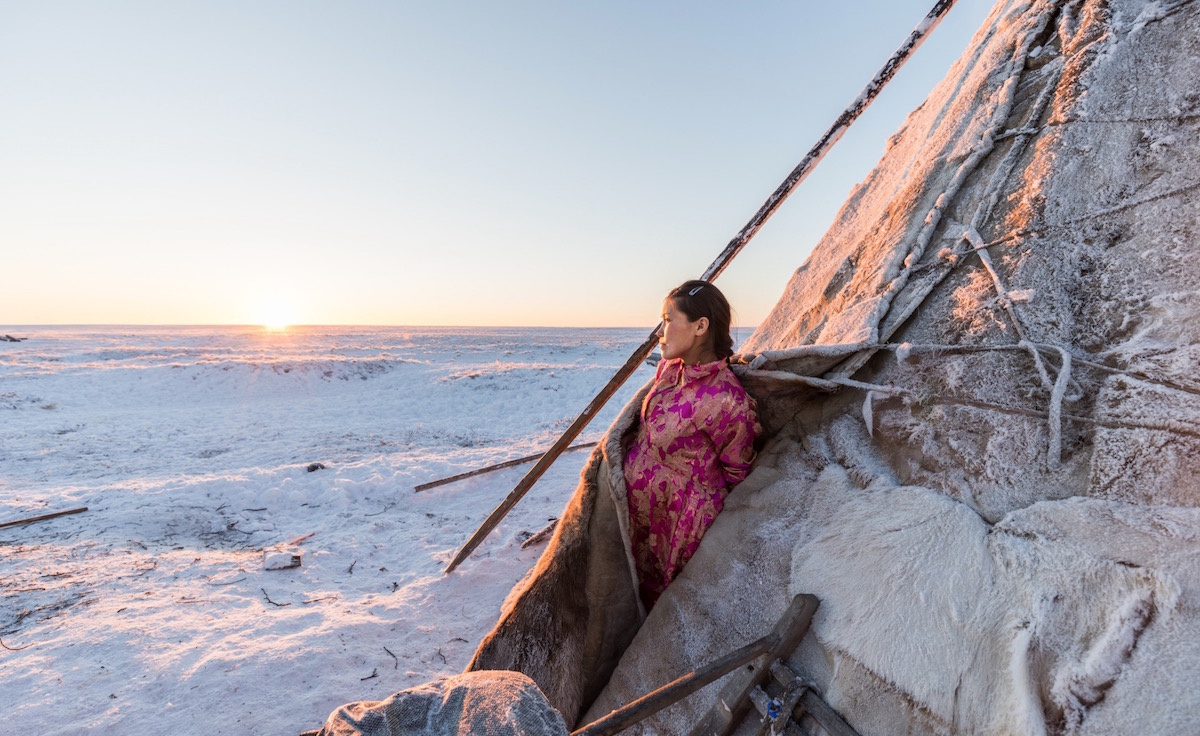The purpose of the Wild Born project is to explore the socio-cultural, ecological and economical aspects which embroider the traditions and practices of natural childbirth amongst tribal women. Wild born project celebrates the incredible resilience of tribal women while documenting their experience of pregnancy and childbirth in extreme environments. Besides exploring the traditional heritage, the project aims to also document their change and symbiosis with global changes. The outcomes of this project should therefore not only provide complex anthropological knowledge supporting the heritage of the indigenous people, but also an understanding of their inherent cultural change and which of its influences enrich or threaten their collective identity. Only then can we truly help with their survival by respecting their inevitable cultural transformation.
‘Wild Born’ was funded by Alegra Ally in 2011 aims to study and document the traditional ways and sacred rituals surrounding pregnancy and childbirth amongst tribal women around the world and document their change throughout time. It also touches a question of bonds between the culture and its environment, sustainability or climate change.
Through field ethnography, photography and film, the project will provide a collection of oral traditions, educational reservoir and outstanding imagery. Besides exploring the traditional heritage, the expedition aims to also document their change and symbiosis with global changes.
Most importantly, this project celebrates women and cultural diversity, particularly the resilience, roles and power of indigenous women and girls from around the world. It also enhances the continuation of their heritage for future generations.
The outcomes of this expedition should therefore not only provide complex anthropological knowledge supporting the heritage of the indigenous people, but also an understanding of their inherent cultural change and which of its influences enrich or threaten their collective identity.
The project’s research questions
Research questions supporting socio-cultural aims:
- Which powers of their animistic belief system, which taboos, rituals and ancient knowledge influences the birthing process from early stages of pregnancy through the childbirth to the care of the child and the mother after the birth?
- What is the role of midwives, how does their traditional knowledge affects the course of pregnancy and childbirth and how it is passed on through generations?
- How do indigenous women succeed with childbirth practices regarded by Western culture as primitive and dangerous?
- Can traditional and non-traditional practices work together to help reduce birth complications without harming traditional values? Which modern influences and western childbirth techniques increased the wellbeing of mother or child and were successfully adopted by indigenous women into their culture without harming their traditional heritage?
- On the other hand, is there anything within cultural heritage of the indigenous women that can inspire modern women and enhance their positive experience of pregnancy or childbirth?
Research questions supporting ecological aims:
- How do indigenous woman relate to their lands and how they enact ecological knowledge during their pregnancy and childbirth processes?
- How does nomadic lifestyle in extreme environment influences the course of pregnancy and childbirth?
- How is the environment, their land, its minerals, plants and animals utilized in the women’s lives surrounding childbearing, such as in the ceremonies, pain management and nutrition?
Research questions supporting economical aims:
- How are global economy and development changing and effecting childbirth practices of indigenous women?
The project entails two main components
- Scientific: Convey an ethnographic fieldwork through participant observation, writing, recording and filming. Field data will be used in the following: academic journals, Master’s thesis, observational filmmaking, archive collection of oral traditions for museums and ethnographical research institutions.
- Creative: Creative dimension of the project lays in using the fields of visual ethnography, photography and film to document the various aspects of the expedition resulting in an outstanding collection of images in a format of a photography book and photographic exhibitions. A documentary film is in early stages of production.






